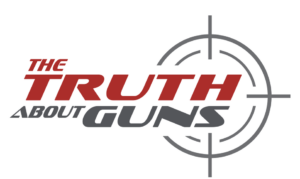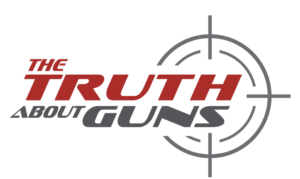Stress. It can be categorized by type – distress, eustress, neustress – and classified by hormone – adrenaline, norepinephrine, and cortisol. Some of its effects can be positive, at least in the short-term, while others are overwhelmingly negative. When it comes to the role of stress in hunting one factor rules them all: training. Yes, you read right. Training isn’t just the purview of self-defense shooters and competitors; training matters for hunters.
“You do not rise to the occasion in combat, you sink to the level of your training. Do not expect the combat fairy to come bonk you with the combat wand and suddenly make you capable of doing things that you never rehearsed before. It will not happen.” (Lt. Col. Dave Grossman, “On Combat”) Whether you’re a fan of Grossman or not, he is dead-on about this.

There are those who argue training is irrelevant; muscle memory isn’t real, repetition has no bearing on future performance during a hunt – or an assault – and practicing specific skills today has little to no bearing on tomorrow trigger time. (Yes, there are people who say these things or variations of them.) And while your life isn’t – typically – on the line while you’re hunting, many of the same factors come into play thanks to adrenaline dumps.
This is reality.
The effects of stress on your brain and body are notable and include various temporary responses: increased blood flow to muscles, mental hyper-focus, greater oxygenation, and a rush of adrenaline-fueled energy. You even become resistant to pain. At first blush these may sound fantastic – an adrenaline rush can only help you, right? – but there are downsides, too. While not lost, your fine motor skills may not be as sharp, and more oxygen is being gulped down by way of hyperventilating. Hyper-focus can become tunnel vision. An adrenaline dump makes you shake like you’ve been mainlining caffeine for days. Learning to work with and through stress isn’t just important, it’s vital.
Get this. Learning to manage adrenaline and stress while hunting isn’t just about the hunt. One day it might cross over to a self-defense situation and be a major factor in saving your life.

This is why we train.
Legally, anyone with a current, government-issued ID who is capable of passing the checks involved in a Form 4473 can own a firearm. (Of course, not everyone adheres to those legalities.) Those of us in possession of legally acquired firearms should be training with them far beyond a single run through How to Shoot 101.
It doesn’t matter if you’re hunting or intend to carry concealed. You need training. The woods are full of good old boys who believe a single shot fired through their .30-30 is sufficient effort not only for deer season but the entire year. Don’t be part of the problem, be part of the solution (yeah, I said it).
Firearms training might begin with memorizing and following the four golden rules of guns but it doesn’t end there. It never ends. There are classes available for shooters of all skill levels and firearms academies across the country offer them. Sure, it might be ideal to visit Gunsite Academy in Paulden, Arizona but it isn’t necessarily feasible. Attend classes where you are able. As for the when, make time.
If you’re thinking you don’t need any training because you’re a hunter, you’re wrong. Shot placement, trigger control, understanding drift and drop – the list of skills to hone for a successful hunt is almost endless. Getting a boost from a qualified instructor is what we call a Good Idea.
Former Sheriff Jim Wilson once said “It’s not about a week of shooting, it’s about a lifetime of learning.” He was right. Train. Practice. Work at it, don’t just scrape by.

This is why we never stop.
Ongoing training not only improves hunting and shooting skills but keeps existing skills honed and ready. Shooting skills are perishable, meaning it requires consistent effort to maintain them let alone further them. No matter what you want to call it – muscle memory, procedural memory, chocolate banana bread memory – one thing is clear: repetition is key. Skills cannot and should not be rushed or ignored.
Invest the necessary time. Train properly and often, and once you have the building blocks down do not simply walk away from them. Revisiting the basics now and again benefits us all. Pay attention to the wisdom of experienced shooters both past and present using the pieces of their lessons you can and discarding the rest, but do not be dismissive. A shooter doesn’t have to be a student of only one shooting school of thought; in fact, they shouldn’t be. Rather than mocking someone because you disagree with some facet of their practices or think they said something silly once, pay attention. You just might learn something.
Of course, if someone is dangerous or downright ridiculous – like the video going around where the shooter uses his mags to jab at the eyes of a dummy for supposed self-defense purposes – walk away. (Run. Run away.) Disagreements over methodology are far different than instances where a supposed instructor or expert is unsafe and preaching risky or foolish tactics.
Back to hunting. Blaming misses and wounded animals on your gun is rarely an accurate gripe. Learn to work through adrenaline and practice until your understanding of placement, drift, and drop is beyond rudimentary. Wouldn’t you prefer successful hunts? Then work for it.
As for gun owners who believe luck will protect them, consider this: luck is rarely incidental and frequently created. Make your own luck by training.
The skills you hone as a hunter will benefit you as someone who also carries concealed. Although the adrenaline dump that takes place during an attack is almost impossible to replicate, hunting is a fantastic way to get an idea what it feels like. Yes, there are different types of stress, but learning to shoot well with adrenaline coursing through your system is a valuable skill.
The ways various shooting skills weave together is amazing – and useful. Take a moment to consider what you might be able to learn from another sector of the shooting sports world. Then get out there, train, and enjoy the hunt, adrenaline and all.







